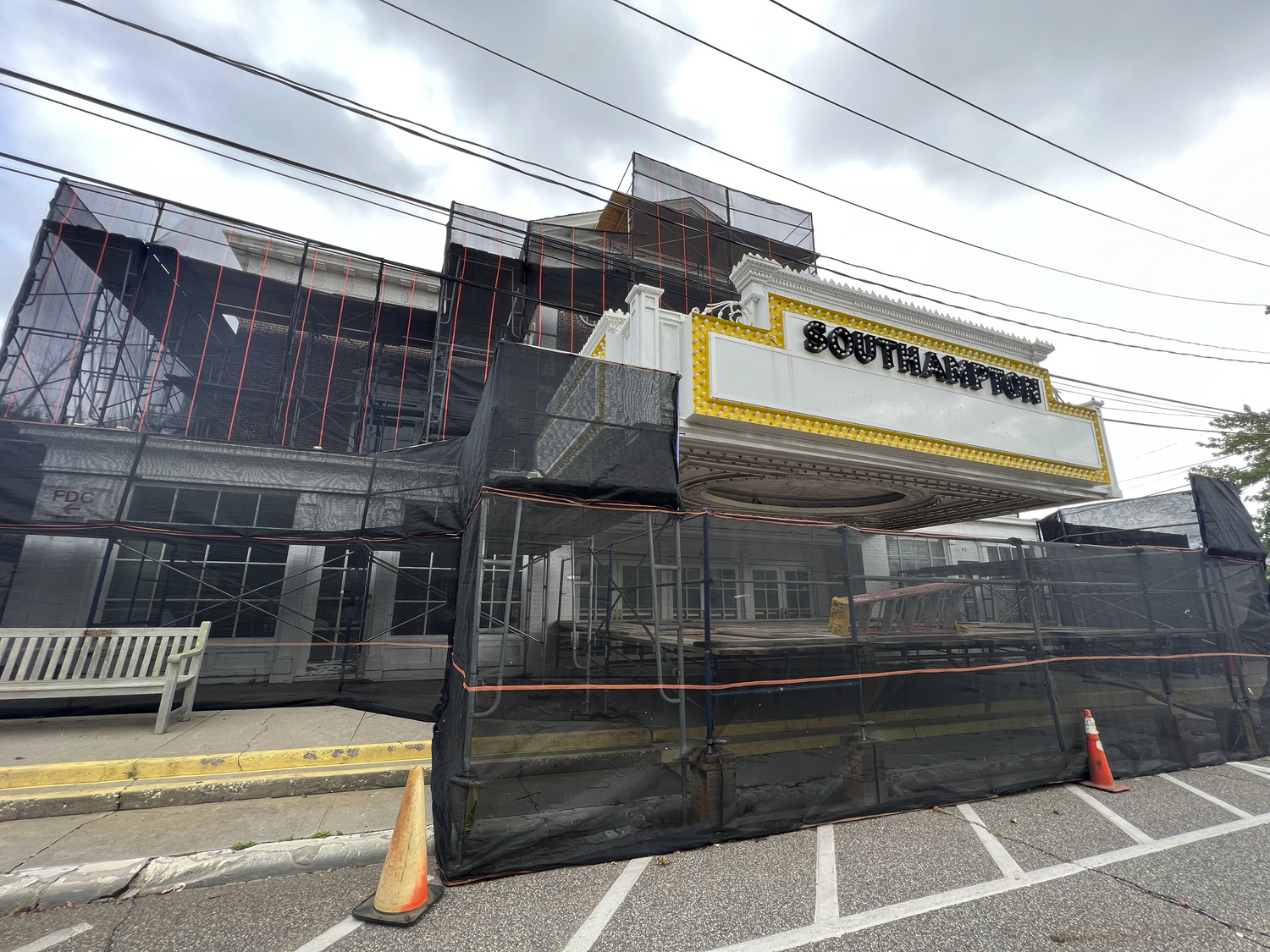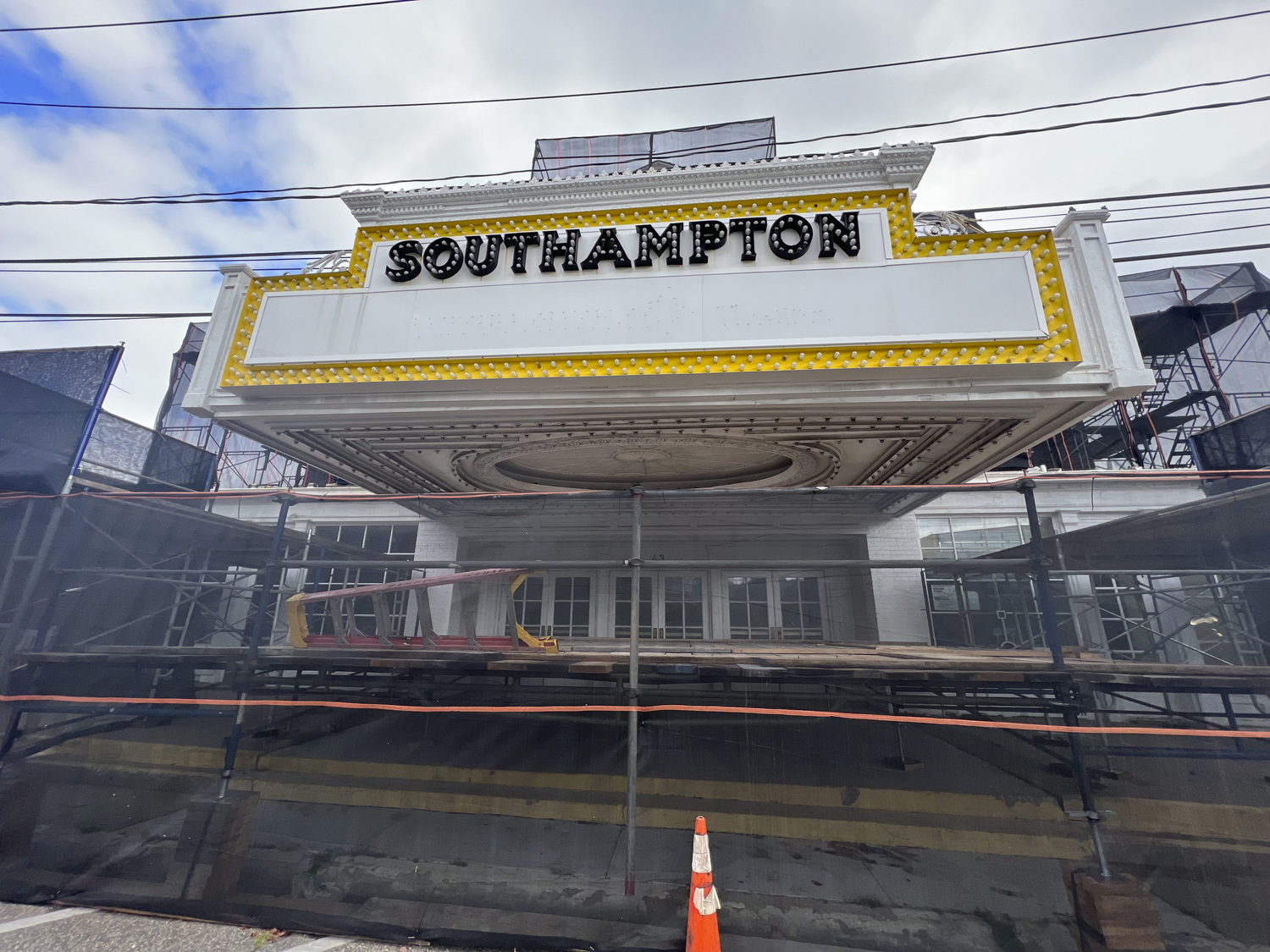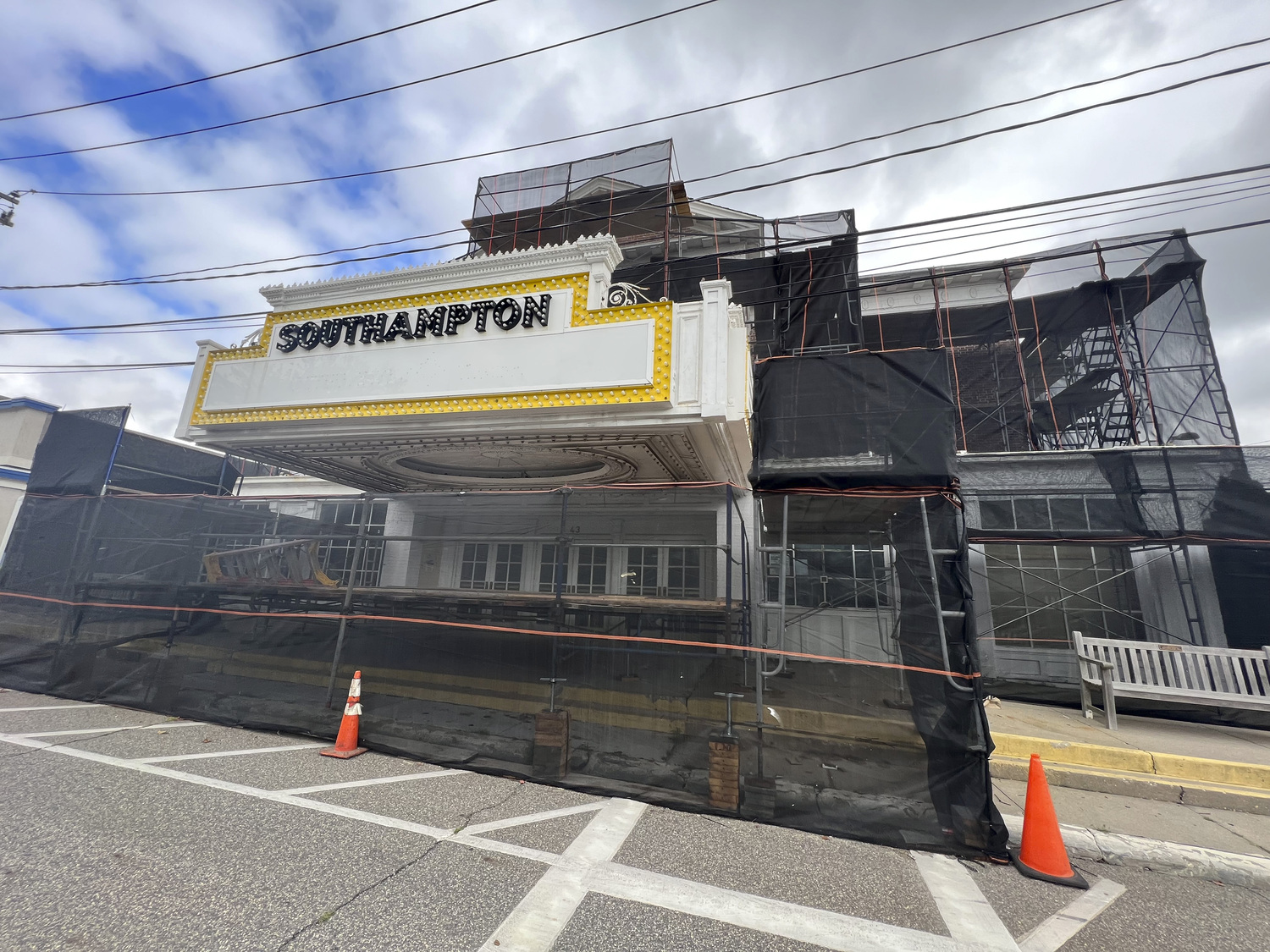
Scaffolding and netting have recently gone up around the Southampton movie theater on Hill Street. DANA SHAW
Scaffolding and netting have recently gone up around the Southampton movie theater on Hill Street. DANA SHAW
Scaffolding and netting have recently gone up around the Southampton movie theater on Hill Street. DANA SHAW

Scaffolding and netting have recently gone up around the Southampton movie theater on Hill Street. DANA SHAW

Scaffolding and netting have recently gone up around the Southampton movie theater on Hill Street. DANA SHAW

Scaffolding and netting have recently gone up around the Southampton movie theater on Hill Street. DANA SHAW
We're happy you are enjoying our content. You've read 4 of your 7 free articles this month. Please log in or create an account to continue reading.
Login / Create AccountWe're happy you are enjoying our content. Please subscribe to continue reading.
Subscribe Already a Subscriber


